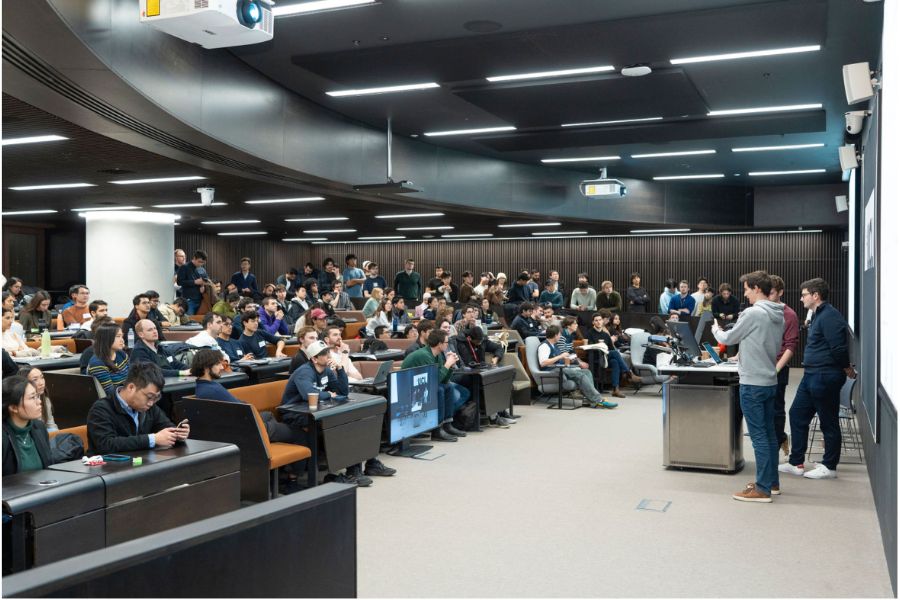
A team of researchers has won the Future of Search prize at the AI Engine UK University Hackathon with a platform that addresses a critical emerging challenge: how to analyze and understand search behavior in an era dominated by AI language models.
The winning team, Cambridge PhD students Kyle Fogarty (Core Lab), Stefan Schöpf and Jack Foster, developed the Agentic Search Analytics Platform (ASAP) during an intensive day of innovation at the UCL AI Centre. Their project tackles a transformative shift in how people search for information – moving away from traditional keyword-based queries toward conversational interactions with large language models.
"People are increasingly using AI to search for recommendations, from finding the best hotel when travelling to comparing running shoes for a marathon," explains Fogarty. "This fundamentally changes how search works, and traditional SEO analytics no longer capture the full picture. We built ASAP to fill this critical gap."
The team's innovation caught the attention of industry judges, earning them both the Future of Search prize and Anthropic's "Most Beneficial through Human Hours Saved" award, which included $2,000 in credits. Their primary technical challenge involved developing robust agentic workflows that could reliably analyze these new search patterns.
The project emerged from one of the UK's most competitive AI hackathons, featuring over 150 students from leading institutions including Oxford, UCL, and Imperial College London. As businesses increasingly adopt AI-powered search solutions, platforms like ASAP will become crucial for understanding and optimising these new search approaches.
